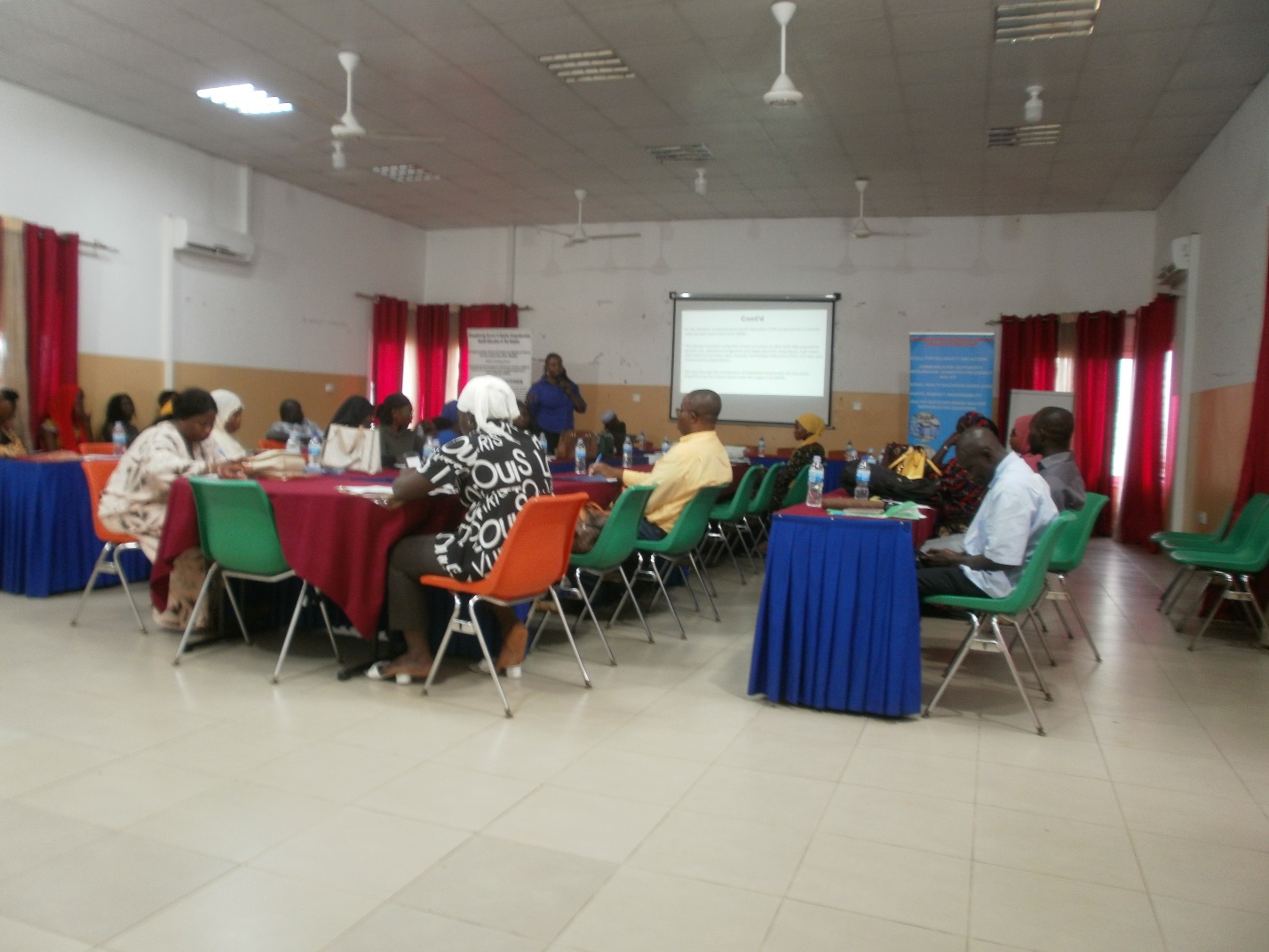By Yunus S Saliu
Disseminating the concluded Comprehensive Health Education Research Findings to numerous stakeholders, the Principal Investigator of the Comprehensive Health Education (CHE) has disclosed in her presentation that 18% of adolescent women are mothers with their first child.
Ms. Phebian Ina Grant Sagnia in her presentation held at NaNAConference Center, Bakau attended by the health workers said teenage pregnancies outside of marriage among adolescent girls, in particular, is a major cause for concern in The Gambia, where almost one in five (18%) of adolescent women age 15 to 19 are already mothers or pregnant with their first child – (GDHS, 2013).
According to the GDHS 2013, she said teen pregnancies constitute a major cause of unsafe abortions, which have contributed to 13% of Gambia’s maternal deaths.
So, “The concern about adolescent sexual and reproductive health (ASRH) has grown over the past years, due to unprecedented increasing rates of sexual and reproductive health infections, early sexual debut, teenage and unwanted pregnancies,” she stressed.
In respect of this, she said, more information is therefore needed to understand and establish the linkage between the various implementation partners to maximise the impact of their interventions, and to fully contextualise local factors affecting adolescents and youth’s access to quality comprehensive sexuality education and use of the available adolescents and youth centers that provides sexual and reproductive health services.
However, she noted that the midline research findings seek to address these weaknesses and gaps in knowledge and practices, while also aiming to provide policymakers at the Ministry of Basic and Secondary Education with detailed information on the type and short-term effects of age-appropriate and culturally relevant package of interventions that can be scaled up to strengthen access to quality comprehensive sexuality education to meet adolescents and youth sexual and reproductive health rights and needs in all Gambian regions.
The Principal Investigator quickly noted that the Comprehensive Health Education funded by the International Development Research Centre (IDRC) is a 5 years project to be implemented in Region 1 of The Gambia and the approach is to conduct Research: collect data and test the intervention.
Earlier, Mr. Michael Hamadi Secka, in his opening remarks delivered on behalf of Mr. Momodou Jeng, Director of the Curriculum Research Evaluation and Development Directorate (CREDD), thanked the participants for their large turned up for the dissemination forum despite their busy schedule.
He dilated on the objective of the forum and encouraged them, as health workers, to give valuable suggestions and recommendations for the CHE project which many stakeholders already tipped to be a standalone subject in the school.
However, he said the midline research findings were done earlier this year and it was carried out in 43 schools and 28 communities in Banjul and Kanifing Municipal Council.
In conclusion, he thanked IDRC Canada for funding the CHE project while, again, urged participants to make useful recommendations towards strengthening access to quality comprehensive health education among in and out-of-school adolescents in The Gambia.
Meanwhile, Dr. Thomas Senghore, in his presentation on the qualitative of the midline research findings discussed the methodology used, and the key findings – policy framework, design, structure, and among others.
He said the research shows that various stakeholders indicated that the CHE program is very good – very innovative and targets all relevant stakeholders’ fundamental to the enhancing understanding of Comprehensive Sexuality Education (CSE).
He noted that the CHE project is nodded as very good by all stakeholders, but most of them are concerned that the activities are concentrated in one region alone.
He finally gave some recommendations for the improvement of the CHE project as per the midline research findings.





